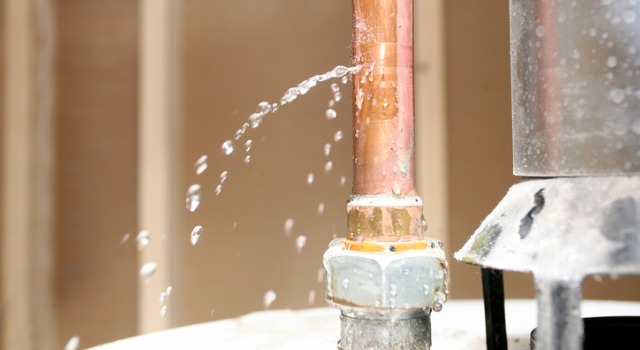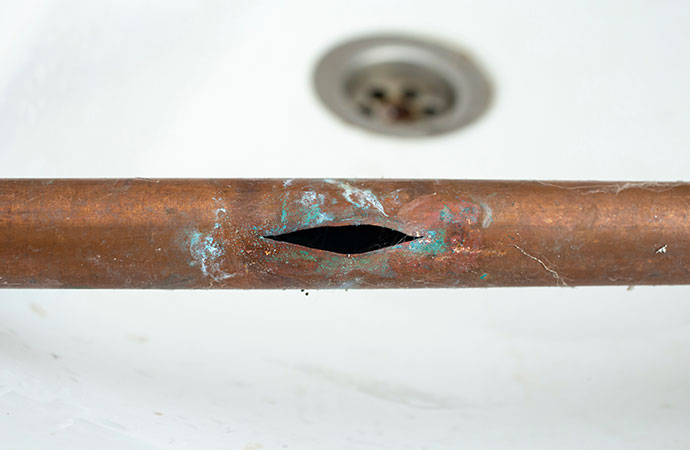Learning About Septic Tank Maintenance: Key Tips
Learning About Septic Tank Maintenance: Key Tips
Blog Article
How do you actually feel in relation to Water Damage Restoration Do’s And Don’t?

What should you do if a water pipe bursts in your residence? The longer you wait, the extra serious the damage that can happen to your building. For these factors, you need to learn just how to act in the occasion of a burst water pipeline.
Turn off the Main Waterline Valve
The first thing to do? Shut the shut-off shutoff. Search for the regional shut-off valve to switch off the water in one particular area just. Go for the primary water line valve and also transform it off if you don't know where the local shut-off valve is. This action will remove the water instantly in your whole residence. Normally, the main shutoff is discovered outside the residence beside the water meter. If it's not there, you can also find it in 2 locations: in the basement at eye degree or the first floor on the ground. Generally, builders placed the shut-off shutoff in the main ground degree shower room or best alongside it.
Call Water Damage Repair Pros for Help
After closing the water resource, call the specialists for assistance. This circumstance is not something you can do some do it yourself since the pipes required to be dealt with as well as there is a requirement to address the various other problems to your building. Seek help from a trustworthy business providing 24/7 emergency solutions if you can not cope. With their expert assistance, you can stop a lot larger water damages including warped baseboards, loosened floor tiles, or harmed frameworks. Don't take this problem gently as well as seek professional advice for your complete satisfaction as well as a trustworthy service.
Paper the Damages For Insurance
While you're waiting on the pros to get here, get some paperwork of the damages caused by the errant pipeline. Take images and videos of every little thing. Do close-up shots of the harmed spots as well as belongings. Your paperwork will function as proof for your house owner's insurance policy. Maintaining aggressive with this scenario aids you to sue for insurance coverage, which will certainly additionally sustain you as well as your family to come back on your feet.
Salvage Points That Can Be Conserved
Once you're done taking images, take a look at the damaged things as well as get one of the most essential ones from the stack. Dry them off in a dry/warm location far from the damaged location as well as try to maintain them as much as you can. Drag as much wetness as you can to the material so it can begin to dry out.
Begin the Drying Refine
Thankfully, the water from your waterlines is already clean so you don't have to fret concerning sewer water. The flowing water might have disrupted the dirt as well as particles in your floorboards and carpets. Blot out as much water as you can from the surfaces with old towels.
Professionals are the only people qualified to examine appropriately and also deal with the burs pipelines and also succeeding damages. They generally offer quiet red flags like gurgling paint, water discolorations.
What should you do if a water pipeline ruptureds in your house? For these reasons, you need to learn exactly how to act in the event of a burst water pipe. After shutting the water source, call the professionals for help. With their expert help, you can prevent a lot bigger water damages including distorted baseboards, loose floor tiles, or damaged structures. Thankfully, the water from your waterlines is currently tidy so you do not have to fret about sewer water.
How to Handle a Burst Pipe and Minimize Damage
Steps to Take Ahead of Time
If you own property in an area that experiences cold weather, you need to be aware of seasonal maintenance tasks that will help you protect your property as the weather changes each year. One of the most important steps is to winterize your pipes to ensure they won't freeze or burst when the temperature drops. This includes action items like insulating any exposed pipes, detaching garden hoses and covering outdoor faucets. If the weather gets cold enough, you may even consider leaving a faucet dripping or opening cabinet doors during the coldest parts of the day.
No matter how prepared you might be, accidents and emergencies still happen. You'd be wise to set up a savings account specifically for your property so you have a "rainy day" fund set aside for unexpected expenses. All homes—regardless of age, location or condition—will inevitably need some form of emergency repair.
Steps to Take for Frozen Pipes
A frozen pipe will not necessarily burst, so if you can catch a frozen pipe early on, you could save yourself a major headache. When your area experiences frigid temperatures, be sure to check your plumbing and keep an eye out for warning signs like faucets only releasing small amounts of water or toilets not refilling when flushed. If you do run into one of these issues, you're likely dealing with a frozen pipe.
If this happens, your first step should be to cut off the water supply to that section of the plumbing. Expanding and freezing water can quickly cause damage. Even if the water supply is shut off, you will likely still deal with some leaking from the water that defrosts after the pipe has thawed. Be prepared with a mop, bucket and/or towels to quickly soak up any excess water.
In order to thaw a frozen pipe, you can use a space heater, infrared or incandescent heat lamp, or even a hairdryer to warm up the frozen area. Heat tape is also an option and should be used according to manufacturer instructions. Do not use any sort of open flame to thaw frozen pipes, as it poses a major fire hazard and can damage your pipes further.
Steps to Take for a Burst Pipe
Water damage claims are the second most common insurance claim in the U.S. When you're dealing with a frozen pipe, the water continues to expand as it freezes, which creates pressure that can cause a pipe to burst. When this happens, the crack or leak in the pipe allows water flow from the pipe to enter your home where it shouldn't. If a pipe does burst, you need to act quickly to mitigate property damage and repair cost.
Your very first step should be to shut off your main water supply to minimize flooding—typically the most expensive damage to address. Once you've shut off the water supply, make sure you identify the entire area that has been impacted by the leak. Remove as much water as possible—as quickly as possible—using a mop, sponges, towels or a shop vacuum or wet/dry vacuum. To prevent long-term damage due to moisture build-up, run a dehumidifier or fan in the affected area. Contact a licensed plumber to ensure the pipe is correctly repaired before running any water to that section of the home again. Burst pipes and the associated water damage are something you absolutely want to avoid as a property owner. If you've had to learn your lesson the hard way, don't let yourself get caught in a similar situation during the next spell of cold weather. The best way to deal with frozen or burst pipes is to prevent them in the first place—proactive winter maintenance will save you time, money and a whole lot of stress.

We were shown that editorial on Water Damage: Tips On What To Do When Your House Is Flooded through someone on a different web blog. If you please take the time to distribute this page if you liked it. Thank-you for your time spent reading it.
Report this page